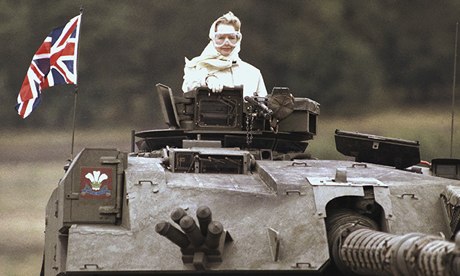November 2, 2013

Prime minister Margaret Thatcher was alarmed by intelligence reports about the Soviet Union's reaction. Photograph: Jockel Fink/AP
Chilling new evidence that Britain and America came close to provoking the Soviet Union into launching a nuclear attack has emerged in former classified documents written at the height of the cold war.
Cabinet memos and briefing papers released under the Freedom of Information Act reveal that a major war games exercise, Operation Able Art, conducted in November 1983 by the US and its Nato allies was so realistic it made the Russians believe that a nuclear strike on its territory was a real possibility.
When intelligence filtered back to the Tory government on the Russians' reaction to the exercise, the prime minister, Margaret Thatcher, ordered her officials to lobby the Americans to make sure that such a mistake could never happen again. Anti-nuclear proliferation campaigners have credited the move with changing how the UK and the US thought about their relationship with the Soviet Union and beginning a thaw in relations between east and west.
The papers were obtained by Peter Burt, director of the Nuclear Information Service (NIS), an organisation that campaigns against nuclear proliferation, who said that the documents showed just how risky the cold war became for both sides.
"These papers document a pivotal moment in modern history – the point at which an alarmed Thatcher government realised that the cold war had to be brought to an end and began the process of persuading its American allies likewise," he said.

No comments:
Post a Comment